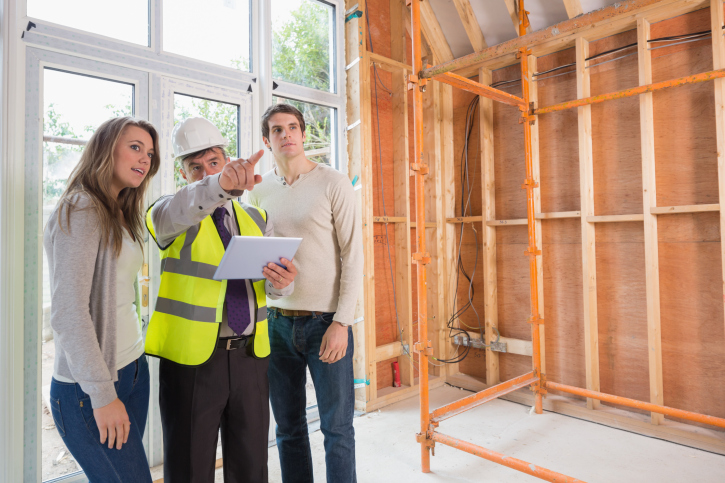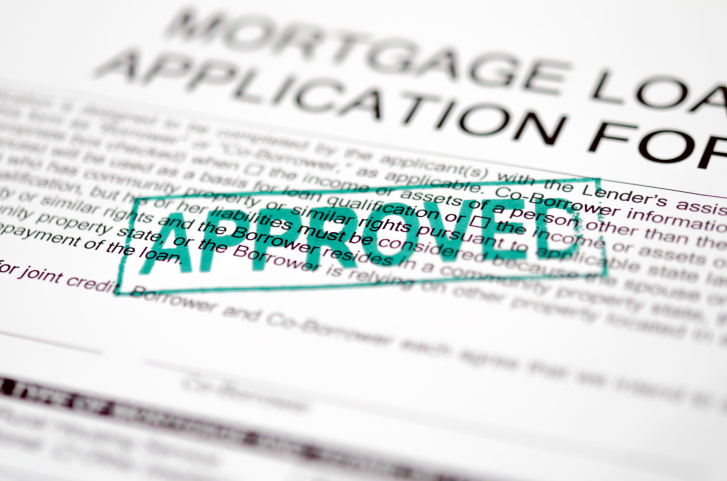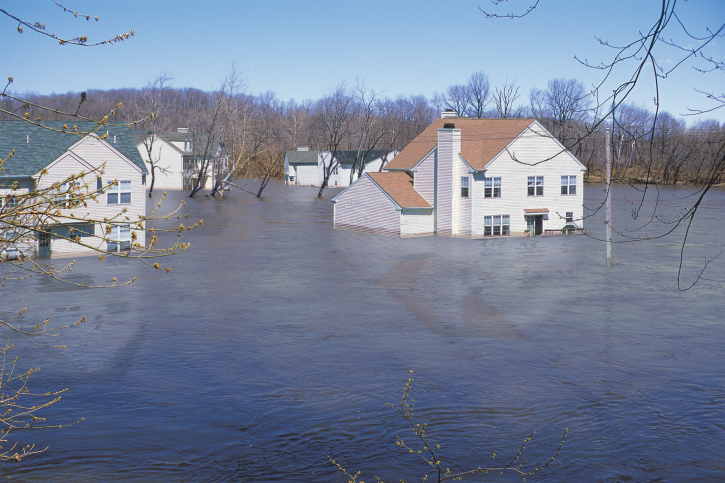 During the past few months, the housing market has been through a lot of changes. One of the biggest changes that have taken place involves new home construction demands.
During the past few months, the housing market has been through a lot of changes. One of the biggest changes that have taken place involves new home construction demands.
While there are plenty of homes that have already been built and are ready to be sold, there are plenty of people who are deciding to build new homes instead of buy existing ones. Now, the demands for new home construction are at heights that have not been seen in close to 15 years.
This has led to a business boom for local contractors. While building a new home is a great option, it is also a choice that requires a team of professionals. Not only are construction professionals needed to build the actual structure but professional contractors are also required to handle the plumbing system, HVAC system, and electrical system. With the recent boom in demand for new homes, local contractors have been busier than ever.
There Is A Shortage Of Skilled Trade Workers
While having plenty of business is a great thing, this is also creating some challenges for those who work in this field. Some contractors are saying that they are having trouble finding enough skilled trade workers who can handle these tasks. When there is a shortage of skilled trade workers, home construction can take longer than planned. While some homeowners expect to have their home ready in around six months, it could take some homes as long as ten months to be completed. While contractors would prefer to shorten the construction cycle as well, there simply aren’t enough people.
Finding The Right Contractors For The Job
For those who are looking to build a new home, it is important to find the right team for the job. It is critical to make sure that all contractors are licensed and insured. While nobody wants to think about something going wrong on a new home construction job, this can still happen from time to time. When this happens, it is important to make sure that all contractors have insurance to cover the cost of any damage that might take place. This will ensure that the new home construction process goes as smoothly as possible.
 If you are looking to sell a home in the current market, then you know that the COVID-19 pandemic has changed the way many people look at the world and this includes their home.
If you are looking to sell a home in the current market, then you know that the COVID-19 pandemic has changed the way many people look at the world and this includes their home. There are lots of homeowners who are looking at their patio and are not satisfied with what they see. This is where it is important to think about ways to bring that patio back to life. Whether this means entertaining friends or simply relaxing with a cocktail and a book, there are a few easy ways to bring a patio back to life.
There are lots of homeowners who are looking at their patio and are not satisfied with what they see. This is where it is important to think about ways to bring that patio back to life. Whether this means entertaining friends or simply relaxing with a cocktail and a book, there are a few easy ways to bring a patio back to life. The internet has changed how many people shop for a home and one of the most important issues that people will face is whether to fill out a home loan application online or offline.
The internet has changed how many people shop for a home and one of the most important issues that people will face is whether to fill out a home loan application online or offline. Recently, the local region’s subcommittee held a meeting using videoconferencing and discussed a new version Home Buyer Assistance Program. The Home Buyer Assistance Program has been designed to help first-time homebuyers by providing a down payment of up to $25,000. The funding for the Home Buyer Assistance Program is going to come from the city’s reparations fund.
Recently, the local region’s subcommittee held a meeting using videoconferencing and discussed a new version Home Buyer Assistance Program. The Home Buyer Assistance Program has been designed to help first-time homebuyers by providing a down payment of up to $25,000. The funding for the Home Buyer Assistance Program is going to come from the city’s reparations fund. Did you know that dry rot is ironically created from having too much moisture come in contact with wood?
Did you know that dry rot is ironically created from having too much moisture come in contact with wood? The COVID-19 pandemic has taken the world by storm. Millions of people all over the world have been infected and businesses have ground to a halt. During this time, it is important for everyone to take a breath, pause, and look at their insurance policies.
The COVID-19 pandemic has taken the world by storm. Millions of people all over the world have been infected and businesses have ground to a halt. During this time, it is important for everyone to take a breath, pause, and look at their insurance policies. While businesses have fallen on hard times during the past few months, there are signs that the economy is going to start to recover quickly. This could mean that homebuyers are entering the market again as well.
While businesses have fallen on hard times during the past few months, there are signs that the economy is going to start to recover quickly. This could mean that homebuyers are entering the market again as well. You’ve got house insurance, and assume your property is covered for any type of detrimental occurrence that can possibly take place.
You’ve got house insurance, and assume your property is covered for any type of detrimental occurrence that can possibly take place. For those who live in a condo, they know that there are numerous advantages that come with this living arrangement. Living in a condo means that other people are going to be responsible for landscaping and common areas while homeowners are still able to build equity in the home.
For those who live in a condo, they know that there are numerous advantages that come with this living arrangement. Living in a condo means that other people are going to be responsible for landscaping and common areas while homeowners are still able to build equity in the home.